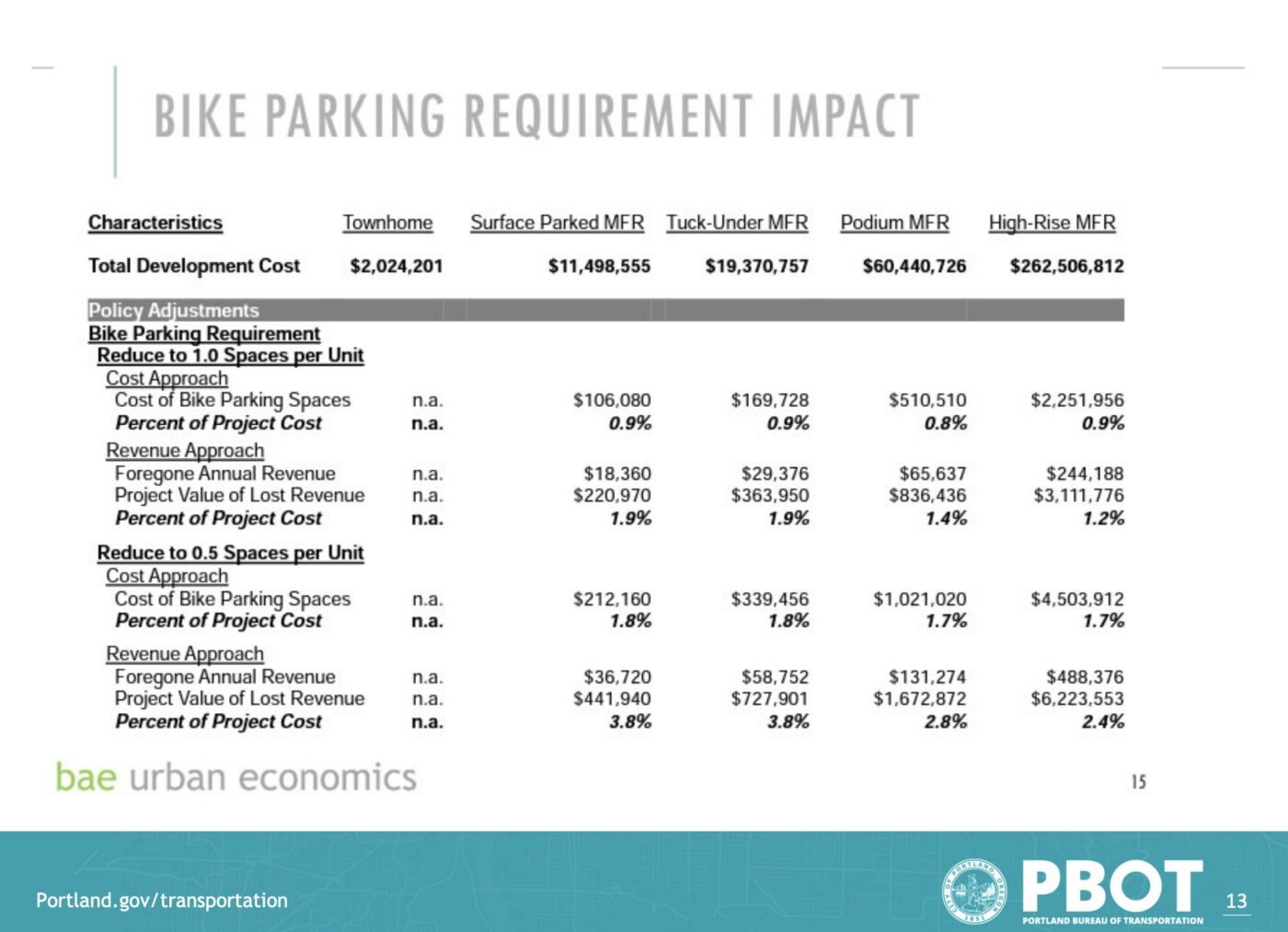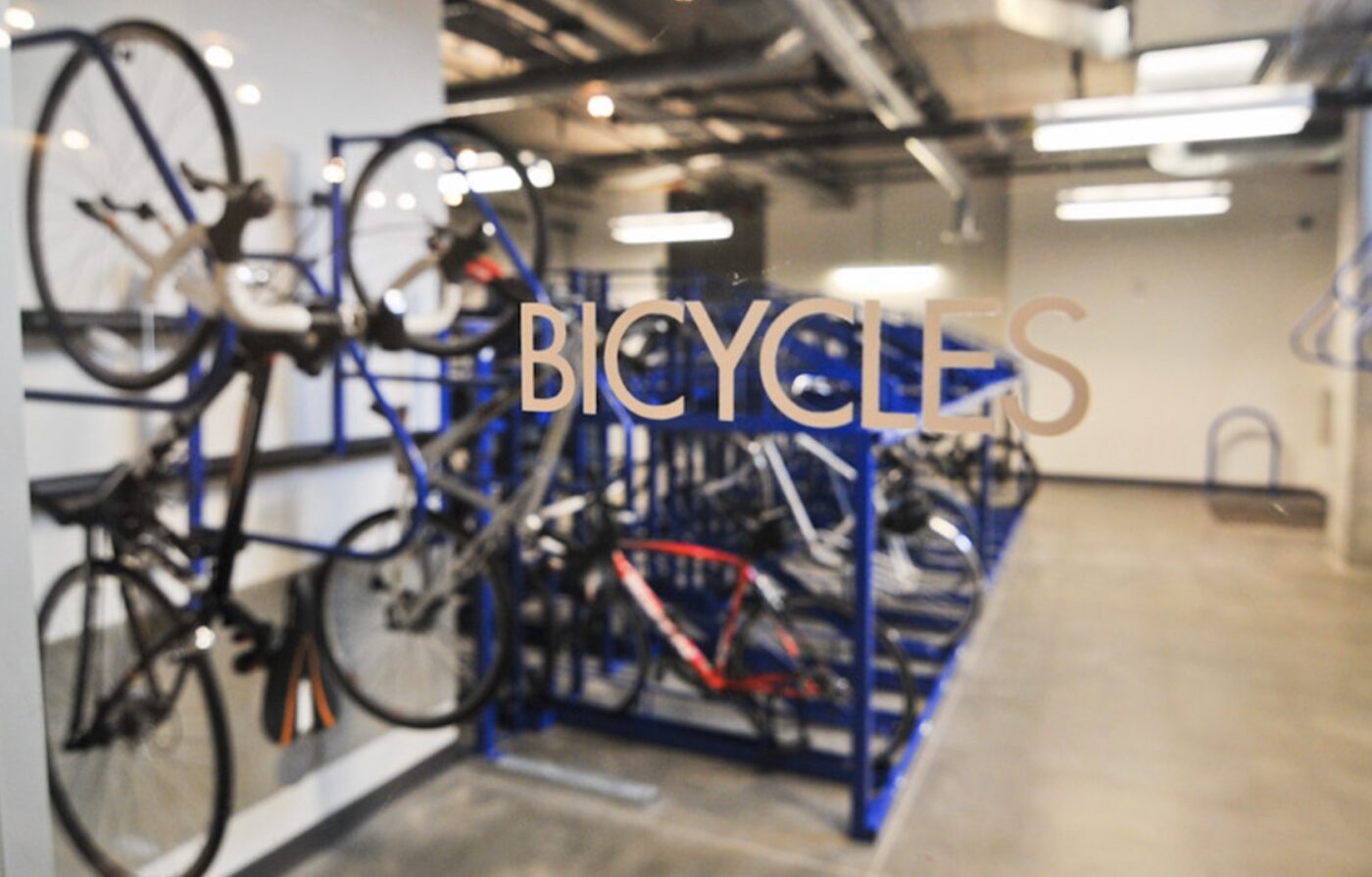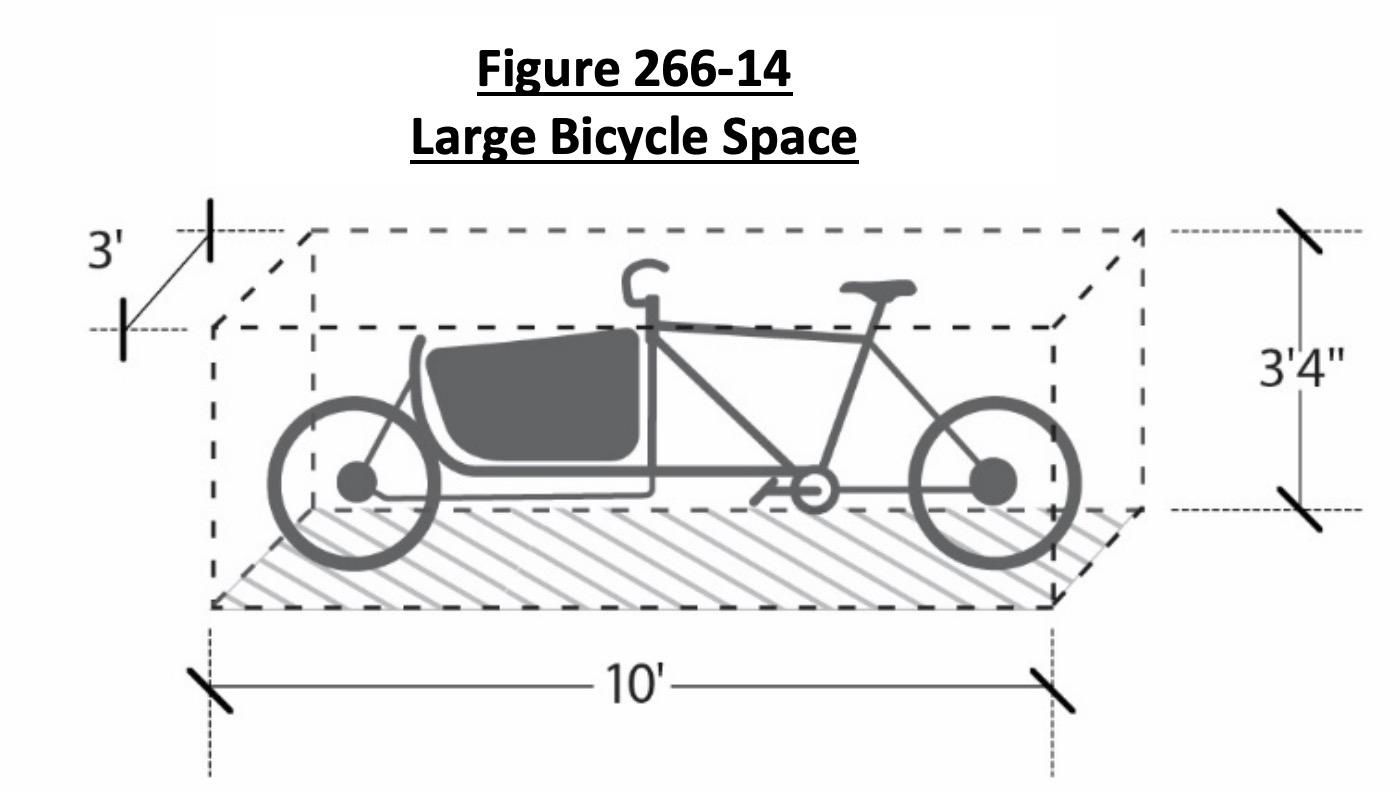“I believe current bicycle code is too complex, too vague, and too rigid.”
– Victor Duong, project manager at LEEB architects and former PBOT Bicycle Advisory Committee member
The Portland Bureau of Transportation is under pressure to make changes to their bicycle parking requirements. It’s part of an effort by City Commissioner Carmen Rubio to respond to a recent survey that found PBOT’s bike parking code is considered by many stakeholders to major impediment to housing production.
At times during a meeting of the bureau’s Bicycle Advisory Committee Tuesday, PBOT Planner Sarah Figliozzi defended the bike parking code and sought to clarify several aspects of a recent report that shed an unfavorable light on it. But she also accepted feedback and revealed the specific parts of the code PBOT would be willing to put on the chopping block. According to Figliozzi, three possible changes are afoot: removal of requirements to build an alcove within residential units and provide spaces for large cargo bikes, as well an overall reduction in the amount of required spaces in new residential buildings.
The current code, adopted in 2020 after years of analysis and feedback, allows developers to provide 50% of long-term bike parking for each residential unit within the unit itself — as long as it is located in a closet or alcove within 15-feet of the front door. This was done to avoid the problem of architects and developers deciding to simply hang a rudimentary hook on a living room wall to fulfill their bike parking requirement. After hearing from housing regulation survey respondents (which included hundreds of developers, property owners, and city staff), that those standards are difficult to comply with, Figliozzi said they are considering a permanent removal of that requirement.



“Some of these design elements are just challenging for the applicants to configure in the types of floor plans that they’re used to working on,” Figliozzi said at the BAC meeting Tuesday. “And they take up a lot of floor space.”
Former BAC member and Portland cycling advocate Victor Duong (an invited guest at Tuesday’s meeting) is project manager at LEEB architects. He’s currently working on a 200-unit project in northwest Portland, “that is currently going through a lot of these bike parking challenges.” He shared several serious concerns in response to Figliozzi’s presentation.
“[The city permitting office] is requiring us to build a bike alcove 15-feet high and there was zero flexibility. I kid you not. A 15-foot wall is just a waste of money,” Duong said. In a follow-up email, he told BikePortland that he’s all for more bicycle parking both personally and professionally, but he believes the current code is, “Too complex, too vague, and too rigid.” He even cited an instance where permit officials from City of Portland “dinged” him for wanting to build more in-unit bike parking than was required.
Duong also said he feels the current code is “devastating” to creating affordable housing in Portland and encouraged BAC members to look at actual plan drawings as they consider the impacts of bike parking requirements. “For every 15 units, the current bike code removes one unit. So on my 200-unit project, it’s effectively removed seven units… it’s very costly.” (A figure included in a consultant’s report used by Rubio’s office of $11,000 in bike parking costs per unit has been the focus of much debate. Figliozzi said that figure is a range between $2,600 to $11,000 per unit and that the consultants have agreed to add additional context about the assumptions and analysis to their report.)
The other part of the code Figliozzi said PBOT will propose for removal is the section that requires a certain amount of spaces for larger bikes. PBOT wanted the code to reflect the growing popularity of cargo bikes in Portland and they added a provision in 2020 that 5% of spaces must be built with a 10′ by 3′ footprint. But now they’ve heard that requirement takes up too much space in smaller developments and they are recommending a temporary removal of that piece of the code.
[Related: LEED apartment building lacks cargo bike parking, so family rents an auto space]
BAC member Katherine Sheie opposed that idea. “I understand that it’s difficult to to accommodate these larger spaces,” she said. “But I think if we are going to get to a larger mode split, we need to be able to provide cargo bike parking, so that people can not own a car and still move big stuff around.”
But from an architect’s perspective, Duong said the 10 x 3 required footprint didn’t fully capture the amount of space required by that part of the code. “With the maneuvering clearances, the cargo bike requirement is two-thirds the dimensions of a compact car parking stall — and that’s inside the building envelope.”
The third part of the code Figliozzi said PBOT staff are contemplating for revision is a temporary reduction of the required amounts of parking for residential units. The current code requires a 1.5 and 1.1 bike parking space per unit minimum in the central city and outer neighborhoods, respectively. Those amounts could drop to 1 and 0.5 per unit. “Staff are continuing to talk through repercussions of temporarily reducing required amounts for residential units,” stated one of Figliozzi’s slides.
From here, PBOT, the Housing Bureau, Bureau of Planning & Sustainability (BPS) and Commissioner Rubio’s office will continue to discuss and negotiate which code changes will support more housing production. A draft of changes will be available in early fall with opportunities for public comment. A hearing on the draft at the Planning & Sustainability Commission is scheduled for October 24th.





